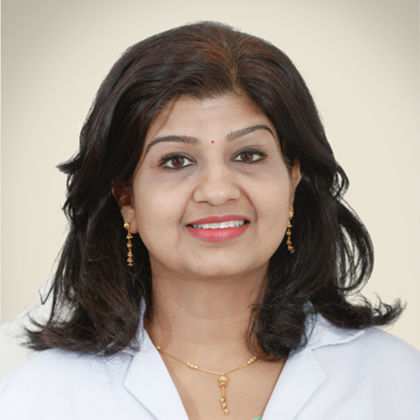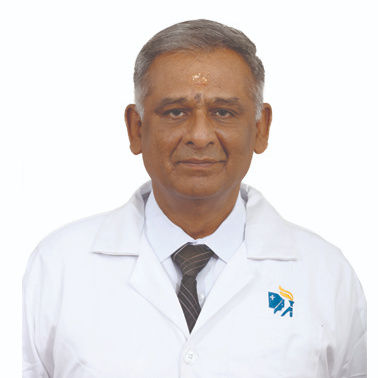Why Do Women Experience Thyroid Issues?
Know why women experience thyroid issues more compared to men, common symptoms and how to manage thyroid issues and consult a doctor.

Written by Dr. M L Ezhilarasan
Reviewed by Dr. Dhankecha Mayank Dineshbhai MBBS
Last updated on 13th Jan, 2026

Introduction
Thyroid problems are more common in women than men, affecting nearly 1 in 8 women at some point in their lives. The thyroid, a small butterfly-shaped gland in the neck, plays a crucial role in regulating metabolism, energy levels, and overall health. When it doesn’t function properly, it can lead to various health issues.
If you’ve been feeling unusually tired, gaining or losing weight without reason, or experiencing mood swings, it could be related to your thyroid. This article will help us understand why women are more prone to thyroid disorders and what we can do about them.
What is the Thyroid and How Does It Work?
The thyroid gland produces hormones—T3 (triiodothyronine) and T4 (thyroxine)—that control how your body uses energy. These hormones influence:
Metabolism -how fast or slow your body burns calories
Heart rate
Body temperature
Mood and brain function
Digestion
When the thyroid produces too much hormone (hyperthyroidism) or too little (hypothyroidism), it disrupts these functions, leading to various symptoms.
Why Are Women More Likely to Have Thyroid Problems?
Several factors make women more vulnerable to thyroid disorders:
1. Hormonal Fluctuations
Women experience significant hormonal changes during puberty, menstruation, pregnancy, and menopause. Since the thyroid works closely with reproductive hormones i.e. estrogen and progesterone, these shifts can trigger thyroid imbalances.
2. Autoimmune Disorders
The most common cause of thyroid dysfunction is autoimmune diseases, where the immune system mistakenly attacks the thyroid.
Hashimoto’s disease (causes hypothyroidism)
Graves’ disease (causes hyperthyroidism)
Women are 5-8 times more likely to develop autoimmune disorders than men, making thyroid issues more prevalent.
3. Pregnancy and Postpartum Changes
Pregnancy increases the demand for thyroid hormones, sometimes leading to postpartum thyroiditis, a temporary inflammation of the thyroid after childbirth. Some women recover, while others develop long-term hypothyroidism.
4. Genetic Factors
If thyroid disorders run in your family, you’re at a higher risk. Women with a family history of thyroid disease should get regular check-ups.
5. Stress and Lifestyle Factors
Chronic stress, poor diet, lack of sleep, and environmental toxins can contribute to thyroid dysfunction. Women often juggle multiple responsibilities, leading to higher stress levels that may impact thyroid health.
Common Symptoms of Thyroid Disorders
It has been divided into hypothyroidism and hyperthyroidism-based symptoms:
Hypothyroidism (Underactive Thyroid)
Fatigue and sluggishness
Unexplained weight gain
Feeling cold all the time
Dry skin and hair loss
Depression or mood swings
Constipation
Heavy or irregular periods
Hyperthyroidism (Overactive Thyroid)
Rapid or irregular heartbeat
Sudden weight loss
Anxiety and irritability
Excessive sweating
Difficulty sleeping
Lighter or missed periods
If you notice these symptoms, consult a doctor for a thyroid function test.
Consult Top Specialists for thyroid function test
How to Manage Thyroid Issues?
While thyroid disorders often require medical treatment, lifestyle changes can help manage symptoms effectively:
1. Balanced Diet
For Hypothyroidism
Include iodine-rich foods like seaweed, fish and dairy, selenium-rich foods like Brazil nuts, eggs and zinc-rich foods like pumpkin seeds, and lentils.
For Hyperthyroidism
Avoid excess iodine and caffeine. Eat calcium-rich foods like leafy greens and dairy to support bone health.
2. Regular Exercise
Gentle exercises like yoga, walking, or swimming can boost metabolism and improve energy levels.
3. Stress Management
Practice relaxation techniques like meditation, deep breathing, or journaling to reduce stress, which can worsen thyroid problems.
4. Regular Check-ups
If you’re diagnosed with a thyroid disorder, regular blood tests and doctor visits are essential to monitor hormone levels.
5. Medication Adherence
Thyroid medications like levothyroxine for hypothyroidism must be taken as prescribed. Never skip doses or self-adjust without consulting a doctor.
When to See a Doctor?
If you experience persistent symptoms like extreme fatigue, sudden weight changes, or mood disturbances, consult a healthcare provider. Early diagnosis and treatment can prevent complications.
Final Thoughts
Thyroid disorders are common in women due to hormonal, genetic, and lifestyle factors. While they can affect daily life, proper diagnosis, medication, and healthy habits can help you lead a normal, active life. Listen to your body, and don’t hesitate to seek medical advice if something feels off.
Consult Top Specialists for thyroid function test
Consult Top Specialists for thyroid function test

Dr. Rajib Ghose
General Physician/ Internal Medicine Specialist
25 Years • MBBS
East Midnapore
VIVEKANANDA SEBA SADAN, East Midnapore

Dr. Ajay K Sinha
General Physician/ Internal Medicine Specialist
30 Years • MD, Internal Medicine
Delhi
Apollo Hospitals Indraprastha, Delhi
(200+ Patients)

Dr. Ramya Hari
General Practitioner
18 Years • Medical Head & Family Physician, DG Shipping Approved Doctor, Panel Physician - UK Visa Medicals
Chennai
Apollo Medical Centre Kotturpuram, Chennai

Dr. Rama Narasimhan
General Physician/ Internal Medicine Specialist
20 Years • MBBS, MD
Chennai
Apollo Hospitals Greams Road, Chennai

Dr. Subramony H
General Physician/ Internal Medicine Specialist
25 Years • MBBS, MD
Chennai
Apollo Hospitals Greams Road, Chennai
(50+ Patients)
Consult Top Specialists for thyroid function test

Dr. Rajib Ghose
General Physician/ Internal Medicine Specialist
25 Years • MBBS
East Midnapore
VIVEKANANDA SEBA SADAN, East Midnapore

Dr. Ajay K Sinha
General Physician/ Internal Medicine Specialist
30 Years • MD, Internal Medicine
Delhi
Apollo Hospitals Indraprastha, Delhi
(200+ Patients)

Dr. Ramya Hari
General Practitioner
18 Years • Medical Head & Family Physician, DG Shipping Approved Doctor, Panel Physician - UK Visa Medicals
Chennai
Apollo Medical Centre Kotturpuram, Chennai

Dr. Rama Narasimhan
General Physician/ Internal Medicine Specialist
20 Years • MBBS, MD
Chennai
Apollo Hospitals Greams Road, Chennai

Dr. Subramony H
General Physician/ Internal Medicine Specialist
25 Years • MBBS, MD
Chennai
Apollo Hospitals Greams Road, Chennai
(50+ Patients)
